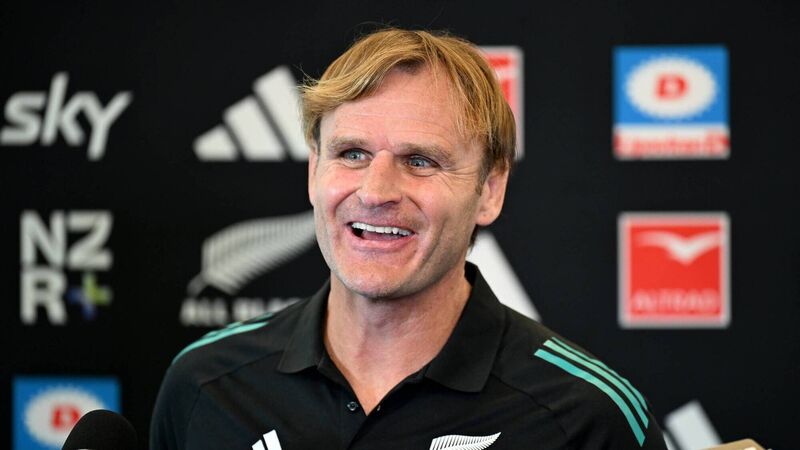Robertson must persuade sceptics, Erasmus wants to tinker

Coach Scott Robertson speaks with media during the New Zealand All Blacks Squad Announcement Photo by Joe Allison/Getty Images
An evolving New Zealand squad will be under pressure to challenge South Africa for Rugby Championship silverware amid growing impatience with progress under Scott Robertson.
After dominating the southern hemisphere tournament from 2021-23, the All Blacks surrendered last year's title to the Springboks in Robertson's first season in charge.












